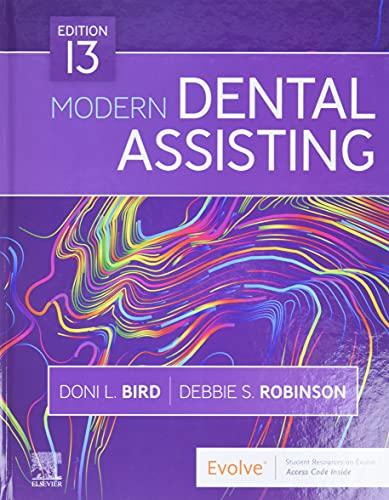Question
Implement a single-source file program called DNA Processor, which will perform text operations on a String representing a DNA sequence. 1. A DNA sequence consists
Implement a single-source file program called DNA Processor, which will perform text operations on a String representing a DNA sequence.
1. A DNA sequence consists of a restricted alphabet of 'A', 'T', 'G' and 'C', which are known as bases.
2. Because DNA sequencing technology is imperfect the sequence given to your program may include invalid characters (which your program will replace with a special character meaning 'unknown')
3. DNA strands are actually made up of two complementary sequences, with strict rules about
which bases appear with which other bases (A only ever pairs with T, G only ever pairs with C).
Your program will be able to switch between the original sequence and its complement (more
details are given later)
4. A common operation on a DNA sequence is transcription, where a part of the sequence is
converted into messenger RNA (mRNA), which is an intermediate step to translating the code
into proteins (this second step is beyond your program). RNA, which is an older form of genetic
material than DNA, uses the same alphabet as DNA except that T is replaced by U.
The program should implement the following high-level algorithm:
Program: DNA Processor
Steps:
1 Display the program's name
2 Prompt the user to enter a DNA sequence (any non-whitespace characters are allowed)
3 Convert that String to upper case, replace all non-DNA characters with a dot (.), and display the error rate (details below)
4Do
4-1| Display a menu of operations for working with that DNA sequence
5While the user has not selected quit
After step 3, only the 'cleaned' sequence of characters will be used. For example, if the user typed 'gaxTT/aca' then it will be displayed later as 'GA.TT.ACA'. For each operation that displays some information the program should present that information with some suitable prefix, such as
'Sequence: '
The available operations are:
Display the current value of the sequence.
Display the error rate,
Transcribe the entire sequence, which should display the mRNA equivalent of the entire
sequence (i.e., the sequence with all Ts converted to Us)
Transcribe a section of the sequence, between two points. The user should be asked to give the
start and end of the section to transcribe, which will be values between 1 and the length of the
sequence, inclusive. Both the start and end should be included in the transcribed section so,
given the example above, if the user asked to transcribe between positions 2 and 5 the program
will produce 'A.UU'.
Switch to the sequence's complement, which should change the current value of the sequence to
its complementary sequence and then display the new value. The rules to apply are: A becomes
T, T becomes A, G becomes C, C becomes G, . remains unchanged. For example, the sequence
above would change to CT.AA.TGT (until the user chooses to switch to the complement again,
sometime later)
Cleaning the input
Strings have a replace All(String regex, String replacement) method that will replace all substrings that match the given regular expression (a pattern that can match a variety of String values) with the given replacement. for example
1. "[XYZ]" matches any single character from the set 'X', 'Y' or 'Z'
2. "[^XYZ]" matches any single character that is not in the the set 'X', 'Y' or 'Z'
a loop to clean the input text.
Calculating the error rate
Transcribing the sequence
Note : Use commenting, coding style for layout, variable names (use of case),
Step by Step Solution
There are 3 Steps involved in it
Step: 1

Get Instant Access to Expert-Tailored Solutions
See step-by-step solutions with expert insights and AI powered tools for academic success
Step: 2

Step: 3

Ace Your Homework with AI
Get the answers you need in no time with our AI-driven, step-by-step assistance
Get Started


